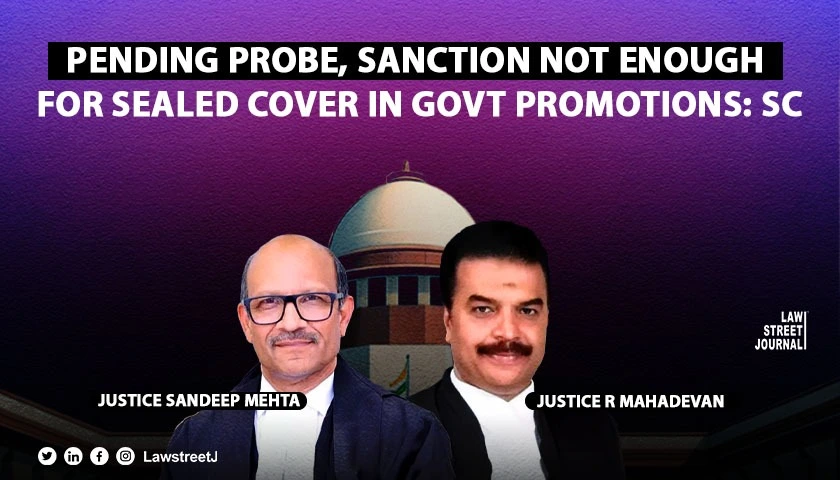NEW DELHI: The Supreme Court on Tuesday held that mere pendency of investigation and grant of prosecution sanction against a government servant are not sufficient to deny promotion to him by adopting the sealed cover procedure.
A bench of Justices Sandeep Mehta and R Mahadevan said the disciplinary or criminal proceedings can be said to be initiated against the employee only when a charge memo is issued to the employee in a disciplinary proceeding or a charge-sheet for a criminal prosecution is filed in the competent court.
"The sealed cover procedure is to be resorted to only after issuance of the charge-memo or when charge-sheet is issued," the bench said.
The bench dismissed an filed by the Union government against the Delhi High Court's 2013 order, which had rejected a writ petition against the Central Administrative Tribunal's decision, directing the authorities to open sealed cover and grant promotion of Doly Loyi, Additional Commissioner of Income Tax to the post of Commissioner of Income Tax.
As the Departmental Promotion Committee found the officer 'fit' in 2007 for promotion as Commissioner of Income Tax, the bench directed the Union government to take consequential steps in this regard.
In the case, the bench noted the Departmental Promotion Committee (DPC) on February 22, 2007 held back his promotion by adopting the sealed cover procedure in his case while his other batchmates were promoted.
The CBI had lodged a case on December 31, 2001 against the officer on allegations that as the Special Secretary (Finance), Government of Arunachal Pradesh, he had acted in conspiracy with other officers and committed criminal misconduct by abusing his position as a public servant. The CBDT (Department of Revenue, Ministry of Finance, Government of India) accorded sanction for his prosecution on June 2, 2006.
The court, however, found the move on the part of DPC to resort to the sealed cover procedure was "unjustified and unsustainable on facts and in law".
As per the Office Memorandum of September 14, 1992, the court noted the sealed cover procedure can be resorted to in respect of three categories of government servants, who are under suspension, in respect of whom a charge sheet has been issued and the disciplinary proceedings are pending, and in respect of whom prosecution for criminal charge is pending.
In the case of the officer, the bench noted, the sanction to prosecute him was granted on June 2, 2006 and the charge sheet was filed by CBI, after completion of investigation on October 25, 2008.
However, the DPC to consider the promotion of Additional Commissioners of Income Tax was convened on February 22, 2007, in which the sealed cover procedure was adopted.
"It is thus clear that the charge sheet was filed well after the meeting of the DPC was convened. Hence, it could not be said that the prosecution for a criminal charge was pending against the respondent when the DPC was convened," the bench said.

















